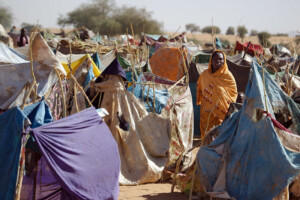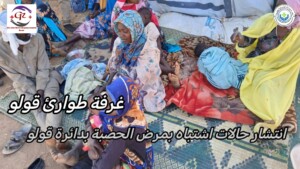Sudan university students and doctors oppose study fees hike
KHARTOUM
Students from multiple universities in Sudan continue to oppose hikes in tuition, registration, and examination fees. The Unified Doctors Office called increased study fees “unfair”.
The Engineering Students Coordinating Committee from the University of Sudan submitted two official complaints to the judiciary on Tuesday. They condemned the university’s decision to raise registration fees and suspend classes after students refused to pay the raised tuition fees. Several parents are also reportedly filing complaints about the university administration to the courts. The committee further warned of further “escalatory legal actions until our right to study has been realised.”
“We attached all the documents required by lawyers to prove the eligibility of our grievances and challenge the eligibility of the administration’s decision,” according to the statement.
On Monday, students staged a protest at the University of Sudan Southern Campus to reject the increase in tuition fees. Students at the College of Engineering and Technical Studies continued to boycott their exams to protest some of their peers being unable to complete the registration process for exams, due to an increase in fees.
Students at Khartoum University closed El Jami’a (University) Street, in the centre of the city, on the same day. The students also protested increases in tuition fees.
At the University of Khartoum, the Neutral Students Group submitted an official memorandum demanding the university to cancel fee increases. In a joint statement, various student associations of the University of Khartoum condemned “the university administration’s failure to respond to our demands for a reduction in tuition fees for 2023.”
University administration reportedly issued a decision to investigate four students for their involvement in the demonstration against the recent tuition price hike last week.
Doctors’ statement
The Unified Doctors Office rejected the increased fees for training, examinations, and theses by the Council of Medical Specialties said in a statement on Tuesday. They called on the Council to freeze the decision, calling it “unfair.” The statement indicated that the Council has not considered the economic situation of the trainees.
The statement further criticised the Ministry of Finance’s “disregard for the deterioration of the working conditions of medics, lack of housing, and extended power cuts in Khartoum.”
Minister Jibril Ibrahim said on his Facebook page last week that the role of the Finance Ministry is limited to approving taxes only. “The Ministry of Finance has nothing to do with levies imposed in localities and states and their methods of collecting them, just as it bears no responsibility for the increased university fees,” he stated.
“Fees may not be imposed unless approved by the Legislative Council or a joint committee made up of members of the Sovereignty Council and the Council of Ministers,” he told Radio Dabanga on January 5.
“This is stipulated in the Constitutional Charter of August 2019. However, since the coup d’état [of October 2021], both the Sovereignty Council and the Council of Ministers do not have legal status anymore. Any administrative court can cancel the fees because they were not enacted by law,” he explained.











 and then
and then